It's been 10 years since the 'Lost' finale: Why viewers loved and hated 'The End'
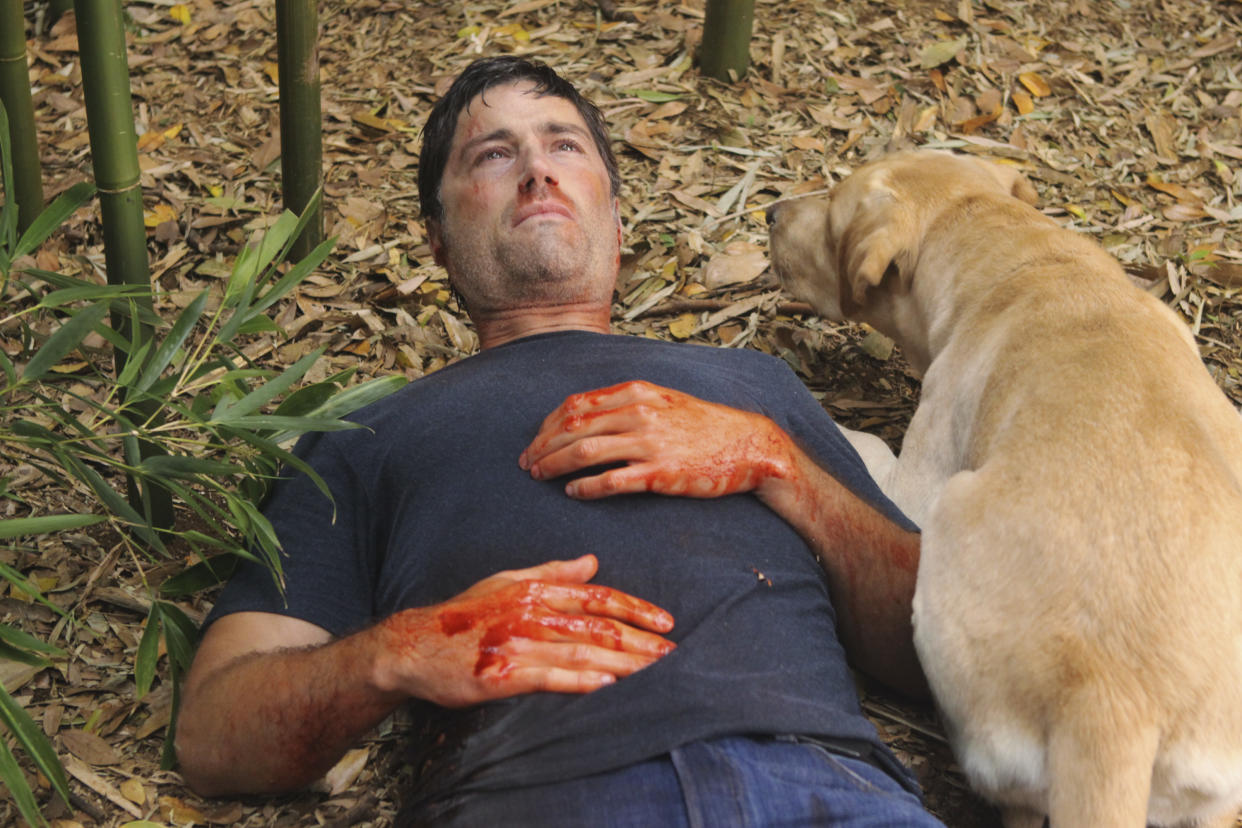
In the end, it was a Shephard — two of them, actually — who led the lost flock home. Ten years ago this week, the hit ABC series, Lost, brought it’s time-and-reality hopping narrative to a conclusion in the super-sized series finale, appropriately titled “The End.”
The final moments of the final episode feature the show’s hero, Jack Shephard (Matthew Fox), reuniting with his fellow Oceanic Flight 815 castaways in a heavenly dimension as they prepare to move on to whatever realm lies beyond death. “Where are we going?” Jack asks his father, Christian Shephard (John Terry), whose specter had haunted him throughout Lost’s six-season run, which is currently streaming in its entirety on Amazon Prime Video.
“Let’s go find out,” Papa Shephard replies. At that point, father and son take their place in pews surrounded by the entire cast — even those who died early in the show’s run — and they collectively step into the light.
That may sound final, but “The End” turned out to be just the beginning of the debate over Lost’s place in the pantheon of all-time TV greats. Certainly, the show’s 2004 premiere was a seismic pop culture event, with action that rivalled big-screen blockbusters and ratings to match.
Lost also launched the careers of future Marvel star Evangeline Lilly, as well as Josh Holloway, Naveen Andrews and Yunjin Kim, and propelled co-creator J.J. Abrams from television to feature film franchises like Mission: Impossible and Star Wars. Meanwhile, the sprawling mythology and carefully-wrapped mystery boxes developed by showrunners Damon Lindelof and Carlton Cuse — who took the reins of the series after Abrams departed, and wrote the last episode — proved perfectly timed to the advent of the internet, which embraced the show with an almost religious fervour and spurred other networks to develop short-lived Lost clones like The Event and FlashForward.

Like all shooting stars, though, Lost eventually fell to Earth. Subsequent seasons wrestled with creative dead-ends (Nikki and Paulo say hello), early exits (farewell Mr. Eko, we hardly knew ye) and a growing pile of unanswered questions. Heading into the series finale, Cuse and Lindelof all but acknowledged there was no way they’d be able to craft an ending that paid off every plot thread and satisfied every viewer.
“We have to have the answers to the mysteries so that there is something to work towards, but what we don't have are the stories,” Lindelof told Wired magazine in April 2010 about their approach to plotting the show. “J.K. Rowling can sit down and say, ‘Here's how Harry Potter's parents were killed, and here's who killed them,’ but how am I going to reveal that information to the audience in the most emotionally impactful way? So we know what we want to do, but we have very little idea of how and when we're going to do it.”
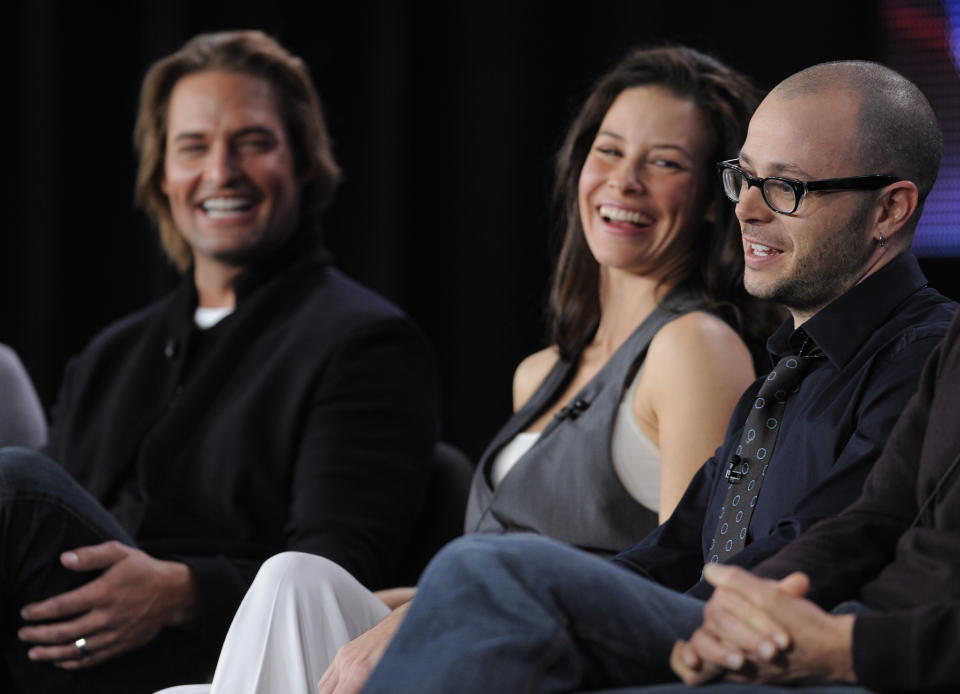
What the duo decided to do was to design a finale that emphasises character over mystery. “The End” plays out in two realities: the mysterious island where mystical forces and weird science live side-by-side, as well as the “Flash sideways” timeline where Jack and the rest of the castaways were back in the real world, albeit leading different lives than what we saw in the flashback sequences that were a major part of previous seasons.
The island-based sequences are explicitly devoted to tying up some, though not all of the loose ends: Jack has a final confrontation with the Man in Black, currently housed in the body of John Locke (Terry O’Quinn); Hurley (Jorge Garcia) becomes the new protector of the island, with Ben Linus (Michael Emerson) as his sidekick; and pilot Frank Lapidus (Jeff Fahey) gets everyone else — including Kate (Lilly), Sawyer (Holloway) and Claire (Emilie de Ravin) — the heck out of dodge. As the plane soars away from the island, a mortally wounded Jack watches it depart from his final resting place as his eyes close, a direct nod to the first shot of the first episode.
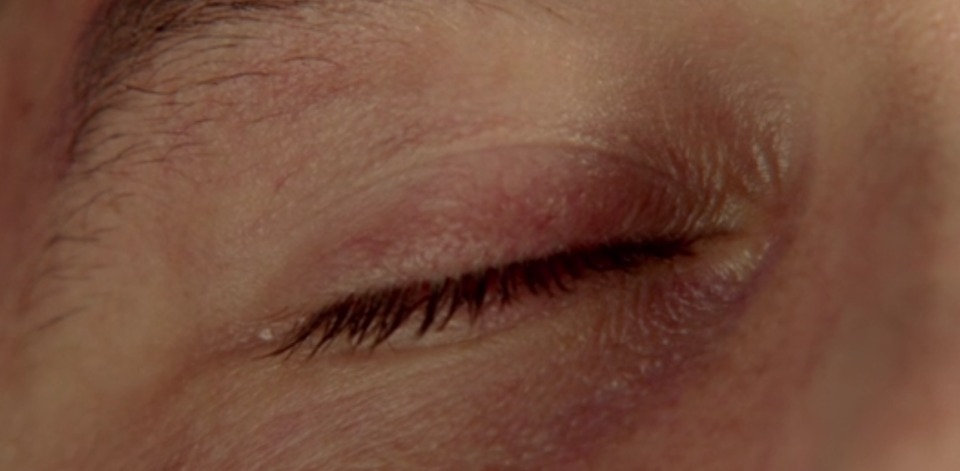
But the heart and soul of the finale lies in the “Flash sideways” material, which allowed the characters to say a heartfelt goodbye to each other and, more importantly, the audience. With Desmond (Henry Ian Cusack) acting as a kind of spirit guide, the castaways slowly awaken to the exact nature of this artificial reality. Jack is the last to remember, but his dad breaks it down for him: “This is the place that you all made together, so that you could find one another. The most important part of your life was the time that you spent with these people. That's why all of you are here. Nobody does it alone, Jack. You needed all of them, and they needed you.”
Upon finding each other in this way station, old grievances are put aside — just look at frequent combatants Jack and Sawyer bear-hug each other! — and old lovers like Sayid (Andrews) and Shannon (Maggie Grace) are reunited. It’s Locke who gets the final words just before the white light consumes them all: “We’ve been waiting for you.”
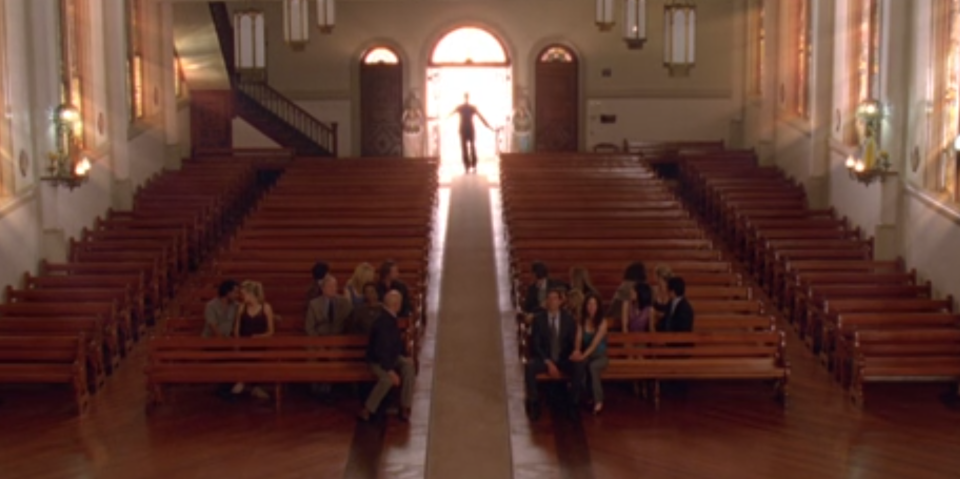
In the real world, “The End” wasn’t exactly the end that a lot of viewers were waiting for. The critical response to the episode was split down the middle, with some reviewers carried away by the emotional weight of the farewell, while others just found the whole thing leaden.
Fan reaction was also divided; on Reddit, overall reviews ranged from “WTF” to “Wow that was amazing,” with opinion on the church finale trending towards the negative. “That was amazing and awesome. Up until the last five minutes,” one Redditor wrote, alongside other pointed comments like “What an incredibly vague way to end a show,” “I feel the ending was a cowardly way to avoid all unanswered questions,” and, perhaps most damningly, “Directed by M. Night Shyamalan.” (The actual director was Lost mainstay, Jack Bender, who helmed some of the show’s best episodes.)
One of the chief complaints many had with the episode was how the “Flash sideways” universe functioned as a kind of purgatory between life and death — the same theory that was advanced about the island itself when the show first launched. As one commentator put it: “I think the overall lesson is that we're all going to die eventually, so we may as well surround ourselves with as many attractive people as we can.”
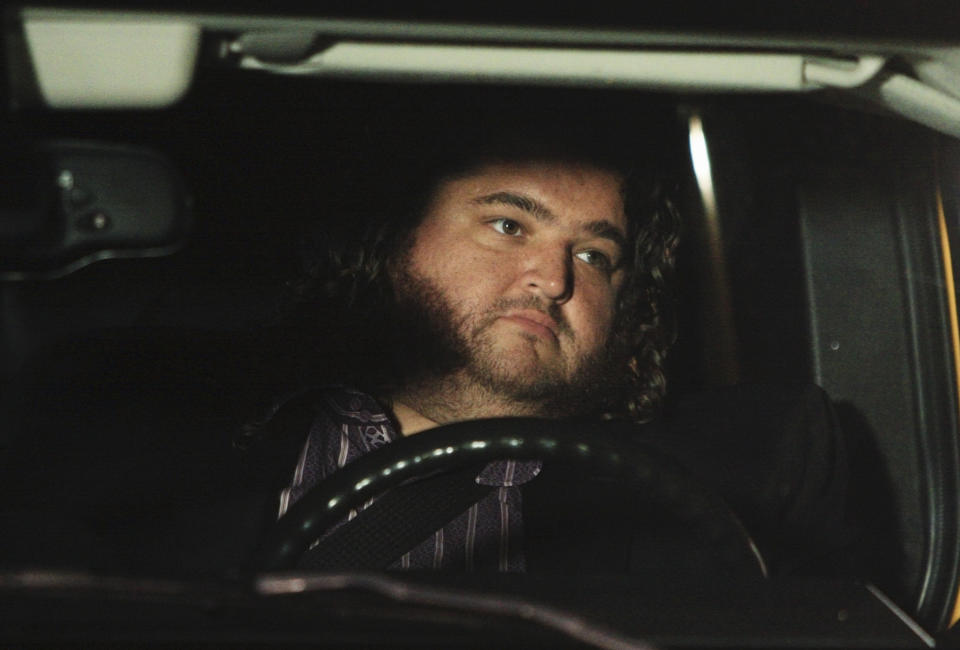
As an early adopter of social media platforms like Twitter, Lindelof heard the criticisms loud and clear, and responded to them in public. “There was a very early perception… that the island was purgatory and we were always out there saying, 'It's not purgatory, this is real, we're not going to Sixth Sense you,’” he remarked at PaleyFest in 2014, an answer that almost seemed directed at that Reddit thread.
Three years later, he told The Independent: “Lost was all about mystery and questions and answers and [I wanted] to try to answer a mystery the show hadn't even asked up until that point… A portion of the audience was like, 'Oh, that wasn’t on my list, I'm not interested in that.' But we were.” Even as he stood by “The End,” the online reaction clearly took its toll. In 2013, Lindelof left Twitter not long after receiving a fresh volley of Lost-related complaints in the wake of the Breaking Bad series finale.
Despite its still-divisive ending, the early success of Lost remains something that TV networks would love to emulate in an increasingly fractured TV landscape. In 2019, ABC Entertainment president, Karey Burke, told the Television Critics Association that she wouldn’t be adverse to rebooting the series. “I would like that very much. That is a reboot I would be interested in seeing.” But don’t expect any of the original creative team to return for a potential revival. "I, personally, am not going to be involved with other versions of Lost because we told the most complete version," Lindelof remarked to Entertainment Tonight last year.
"I feel like I spent four years of my life begging them to end it and when they finally said yes, the ending that we did probably should stand as our ending." In other words, it’ll be up to a new Shephard to guide the series out of purgatory and back onto your TV.
Lost is currently streaming on Amazon Prime Video UK.
Solve the daily Crossword


